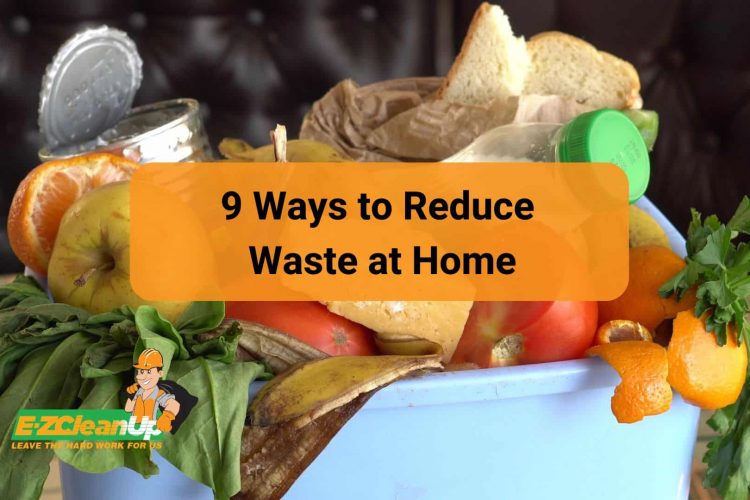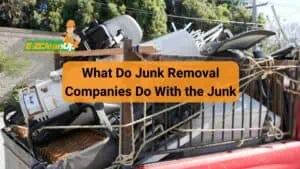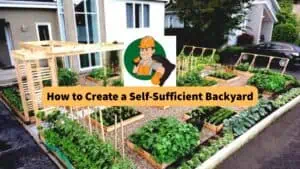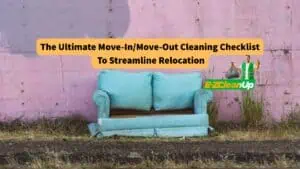To reduce household waste, plan and use your meals wisely, compost, buy in bulk, choose recyclable packaging, and sort recycling accurately. Make eco-friendly cleaners, opt for reusable items, save energy with efficient appliances, and digitalize records. Share tips to amplify community impact.
Learn the top 9 ways to reduce waste at home in our article below.
#1: Improve Your Kitchen Habits
Making changes in how you manage your kitchen can save both money and the environment. Here are some simple steps to enhance your kitchen routines:
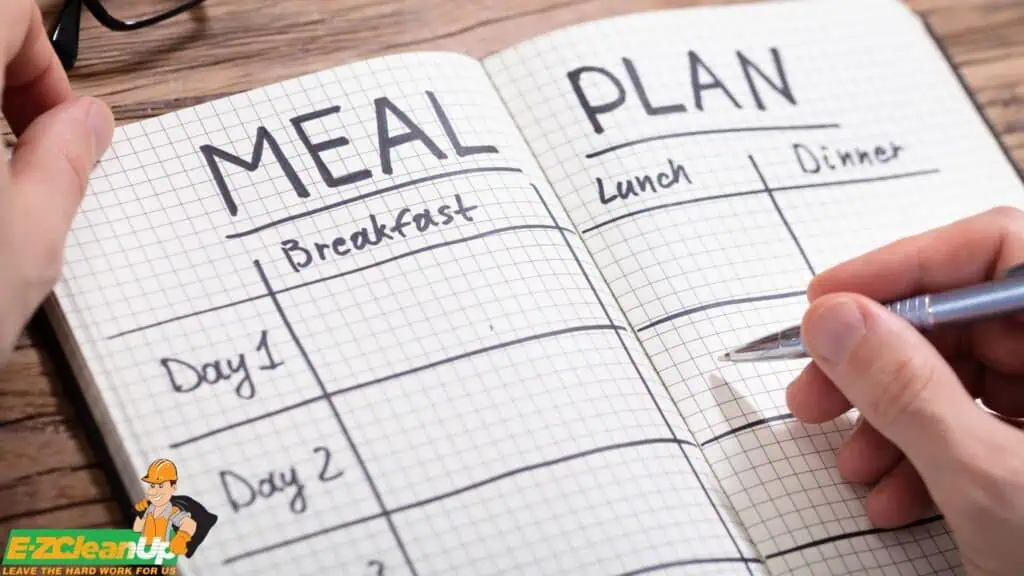
Plan Meals and Shop Smartly
Meal planning is essential for cutting down on waste. Check what you already have at home to avoid buying the same items. By planning your meals, you purchase only what you need, which reduces the chances of food going bad.
Try to use recipes that share ingredients to make sure everything gets used. Also, cook dishes that can be made in large quantities and stored, like casseroles or soups.
Compost Kitchen Scraps
Composting kitchen leftovers like vegetable skins, coffee grounds, and eggshells is a great way to handle waste. It cuts down trash and turns your waste into valuable compost for your garden. This enhances soil health and supports your plants without chemical fertilizers.
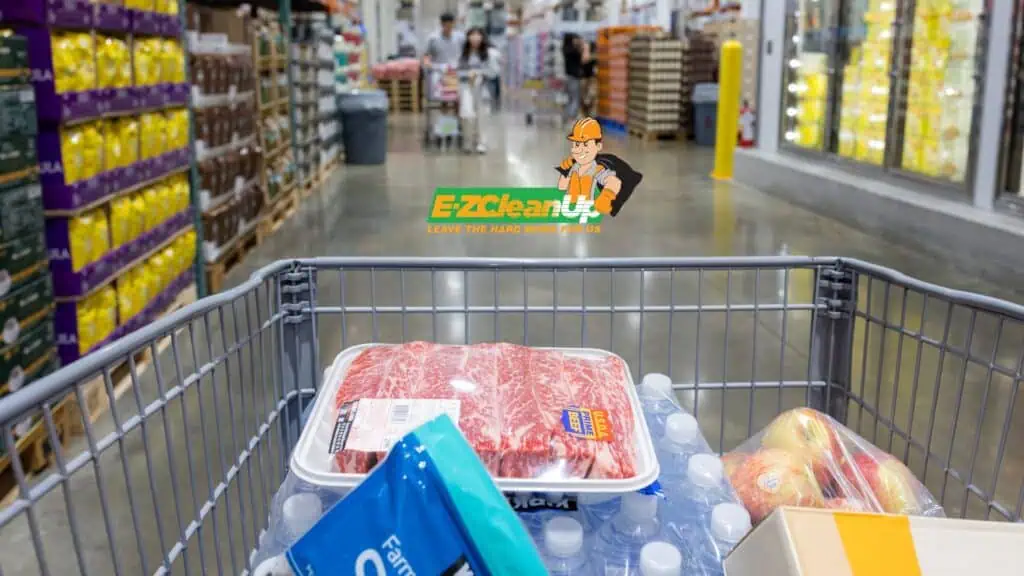
#2: Change Your Shopping Habits
Mindful shopping can greatly reduce your household waste. Here are effective ways to shop that support a sustainable lifestyle:
Buy in Bulk
Purchasing items in bulk reduces packaging waste and often saves money. Whether it’s food like grains and spices or non-food items like cleaners, buying larger amounts means less packaging waste. This helps lower the environmental impact of the production and disposal of packaging.
Choose Eco-Friendly Packaging
Opt for products with minimal or recyclable packaging. Look for materials like glass or certain plastics that are easy to recycle. Consider products with refillable options or those made from recycled materials to help reduce the need for new resources and support recycling efforts.
By choosing bulk items and sustainable packaging, you contribute to waste reduction and support sustainable business models.
#3: Improve Your Recycling Efforts
Setting up an effective home recycling system can make a big difference in waste reduction. Here’s how to make it work for you:
Organize Your Home Recycling
To set up an effective recycling system at home, start by determining the space you have available and the type of recyclables your local facility accepts. Use separate bins for different materials, such as paper, plastics, and metals, to simplify the sorting process.
Label each bin clearly and place them in accessible locations around your home where waste is most generated, like the kitchen, home office, or garage. Make sure to use bins that are sized appropriately for your space and the amount of recyclable waste you produce.
Regularly clean and dry all recyclables, especially containers, to prevent contamination and ensure they are accepted by recyclers.
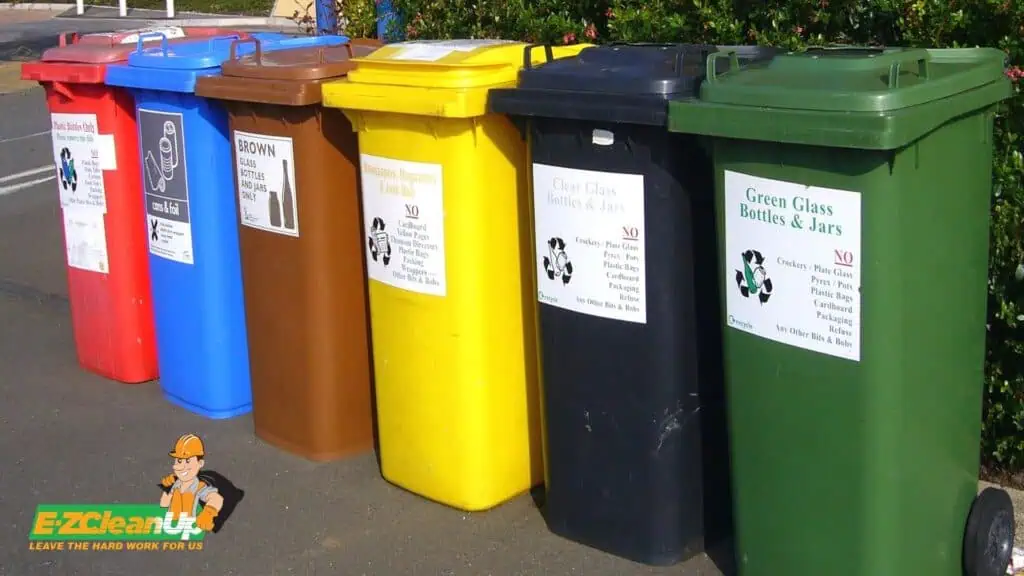
Know and Follow Local Recycling Rules
Make sure you understand your community’s recycling guidelines to avoid the common mistake of ‘wishcycling”—disposing of non-recyclables in the recycling bin. Educate your household with visuals like charts or lists placed near the bins, and keep updated on any changes in the rules.
These steps will help you maintain a strong recycling system at home, helping to reduce waste and enhance sustainability. Stay informed and involved in local recycling practices to effectively contribute to community waste reduction.
#4: Adopt Sustainable Cleaning Practices
Using eco-friendly cleaning methods goes beyond just choosing the right products. Here’s how to integrate sustainable cleaning into your routine:
Make Your Own Cleaning Products
Creating your own cleaning products is a simple and effective way to minimize the use of harsh chemicals and reduce waste from packaging.
For a simple all-purpose cleaner, mix equal parts of water and distilled white vinegar in a spray bottle. This solution works well for most cleaning needs except on surfaces sensitive to acidity, like marble or granite.
For a natural scented option, adding a few drops of essential oils like lemon or tea tree can provide antimicrobial benefits and a pleasant fragrance.
Use Reusable Cloth and Sponges
Materials like microfiber or cotton dish towels can replace paper towels and disposable wipes. These materials are more absorbent, washable, and durable.
These make them ideal for repeated use. Implementing these changes in your daily cleaning routine contributes to a lower carbon footprint and promotes a more sustainable lifestyle.
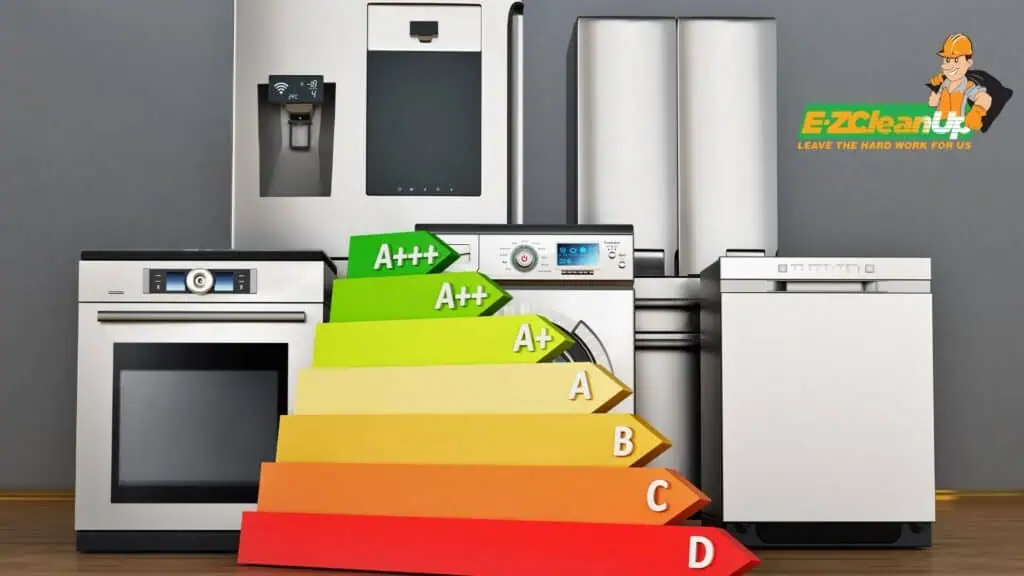
#5: Implement Energy-Efficient Solutions
Embracing energy-efficient solutions at home can significantly reduce water usage and energy bills. This contributes to a more sustainable environment.
Use Water-Saving Appliances and Fixtures
Integrating water-saving appliances like high-efficiency washing machines and low-flow toilets in your home can lead to substantial reductions in water use. For example, modern high-efficiency washing machines use about 40% less water than older models.
Replacing older toilets with WaterSense labeled models can save a family of four approximately 16,000 gallons of water per year. These changes conserve water while reducing the energy used for heating water and treating wastewater.
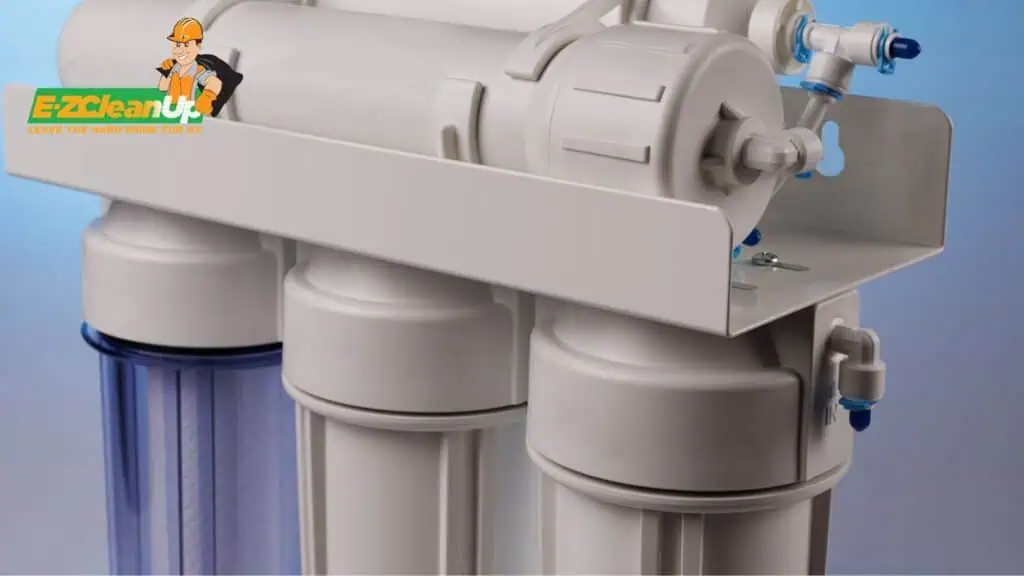
Install a Water Filter
Installing a water filter at home is a practical measure to improve water quality and reduce dependence on bottled water. This helps cut down on plastic waste while ensuring you have access to clean drinking water without the extra cost and environmental impact of bottled water.
Filters can be attached directly to your tap. This way, the water is purified right before use, which is both convenient and beneficial for health.
#6: Support Reusable Over Disposable
Choosing reusable items over disposables is a simple and impactful way to reduce waste and the environmental footprint. Here’s how you can effectively integrate this practice into your daily life.
Adopt Reusable Containers and Utensils
Incorporating reusable containers and utensils into your daily routine reduces the demand for single-use plastics. This can significantly lower your environmental impact.
Studies have shown that after just a few uses, reusable containers can outperform disposable ones in all environmental impact categories. These include reducing greenhouse gas emissions and energy consumption.
Using these items in every aspect of dining, from takeout to home-cooked meals, promotes sustainability. It can also lead to long-term savings and waste reduction.
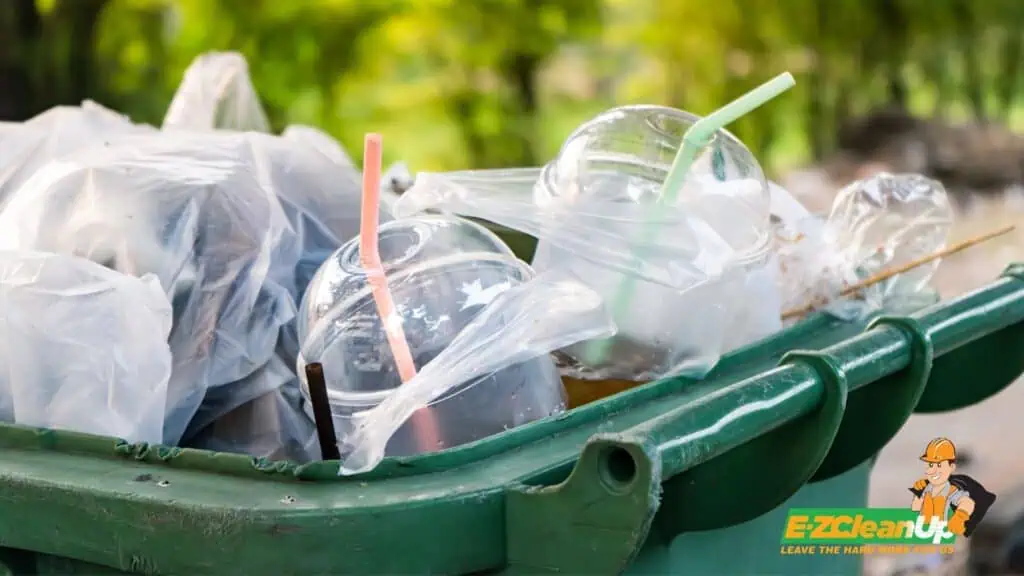
Avoid Single-Use Plastics
Choosing alternatives like beeswax wraps instead of plastic wrap contributes to waste reduction. Beeswax wraps are sustainable, reusable, and offer an effective solution for storing food while keeping it fresh.
They are a practical component of a zero-waste lifestyle that aligns with the growing global emphasis on reducing plastic pollution and promoting environmental stewardship.
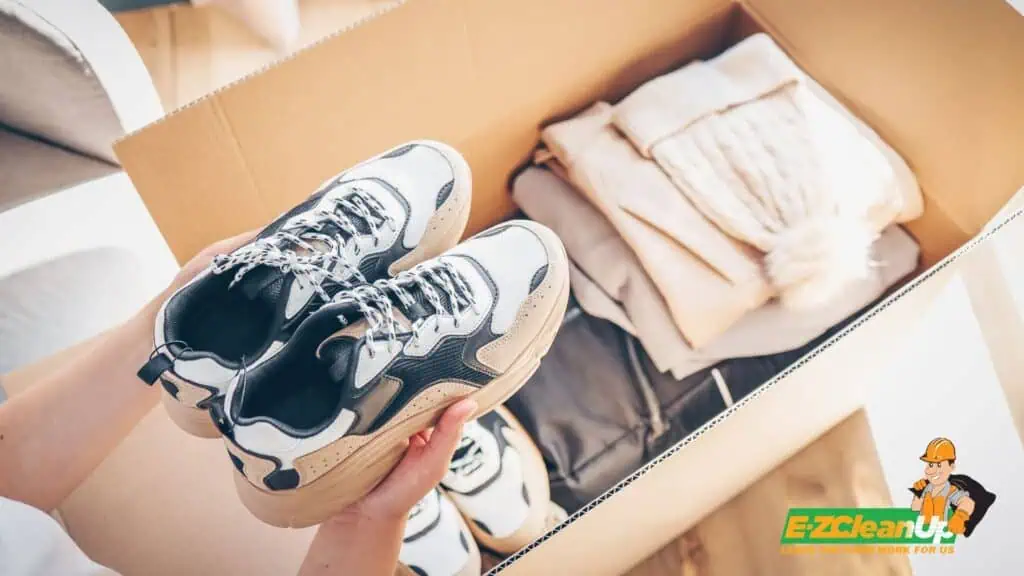
#7: Embrace Second-Hand and Donation Practices
Incorporating second-hand purchases and donation habits into your lifestyle offers many benefits. These include personal savings as well as advantages for the environment and community health.
Buy and Sell Items Through Second-Hand Markets
Buying second-hand goods is a smart move, both economically and environmentally. By choosing to buy used, you substantially reduce the demand for new products. This, in turn, lessens the resource extraction and waste typically associated with the production of new goods.
Items like clothing, furniture, and electronics can often be found in excellent condition for a fraction of their original price. This practice saves you money and cuts down on environmental impacts by minimizing the need for new resources and reducing landfill waste.
Donate Items You No Longer Need
Donating items helps declutter your home. It also plays a crucial role in supporting the community and promoting sustainability. When you donate goods, you give others the opportunity to use what you no longer need. This extends the product’s life cycle and reduces waste.
Organizations like thrift stores or non-profits often sell these items at a low cost. This makes essential goods more accessible to those on limited budgets. Moreover, these donations help fund community programs, which can have a broader social impact.
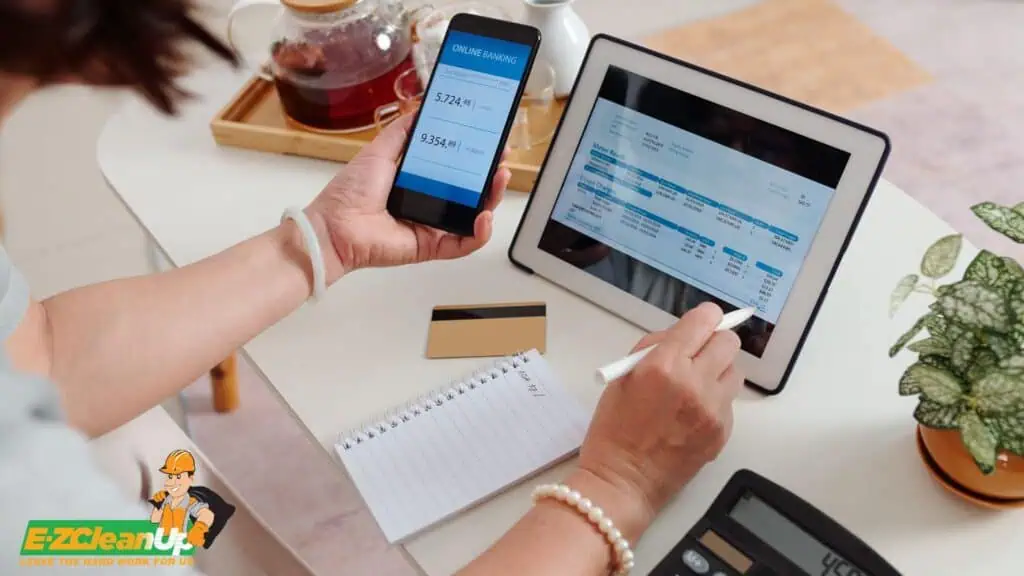
#8: Engage in Digital Optimization
Transitioning to digital platforms for managing bills, subscriptions, and entertainment is convenient. It is also a crucial step towards sustainability.
Go Paperless with Bills and Subscriptions
Adopting paperless billing and digital subscription management helps decrease environmental impact. The benefits include lowering the costs associated with paper handling and storage.
It enhances data security due to reduced physical document exposure. It also improves efficiency by streamlining access to and management of your bills and subscriptions.
Utilize Digital Tools and Platforms
Using digital platforms for reading and entertainment purposes reduces the need for physical copies. By doing so, it saves trees while offering unmatched convenience.
You can access a wide range of materials from anywhere at any time. This reduces clutter in your space and allows for instant updates and interactions.
Furthermore, digital platforms often provide features that enhance user engagement and learning. These include interactive content and accessibility features.
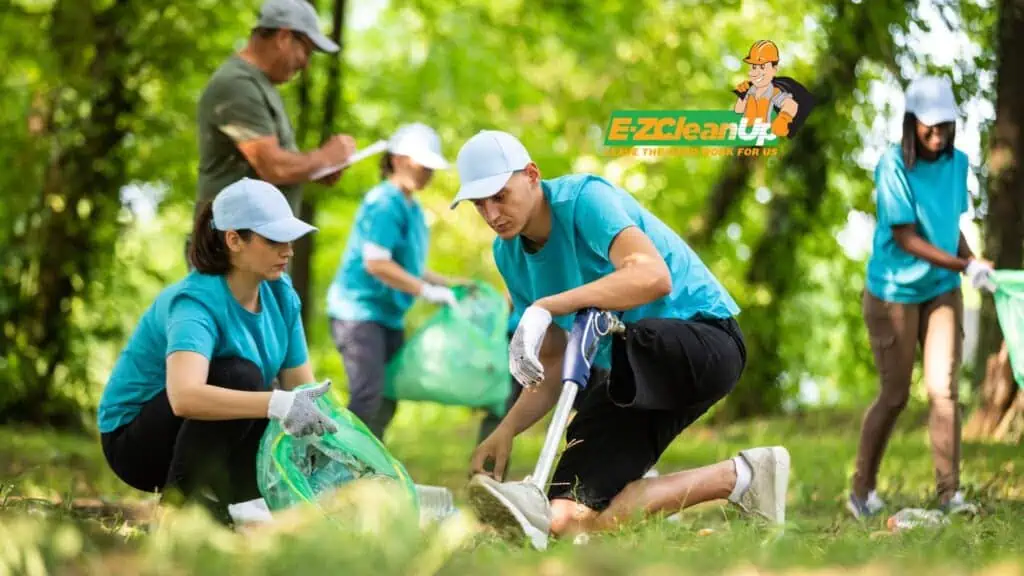
#9: Educate and Influence Others
Engaging your community and sharing your knowledge are powerful tools for promoting environmental sustainability. Here’s how you can make a meaningful impact.
Share Tips and Practices with Your Community
Spreading awareness about sustainable practices can start with simple actions. Host informational sessions or casual meet-ups to discuss easy and impactful changes everyone can make.
Use social media to share tips, articles, and personal experiences about reducing waste, conserving energy, and other green practices. Platforms like Facebook and Instagram can help you reach a wider audience and create engaging content that encourages participation.
Additionally, creating educational content, such as infographics or short videos, can visually demonstrate the benefits of sustainability practices. These can be shared during community events or on social media to help inform and inspire others.
Participate in Local Environmental Initiatives and Workshops
Get involved in local environmental projects and encourage others to join. Community gardens, clean-up drives, and recycling programs are excellent ways to engage with your neighbors and make a tangible difference.
Participating in or organizing workshops on topics like composting, water conservation, or sustainable gardening can provide hands-on learning opportunities that benefit everyone involved.
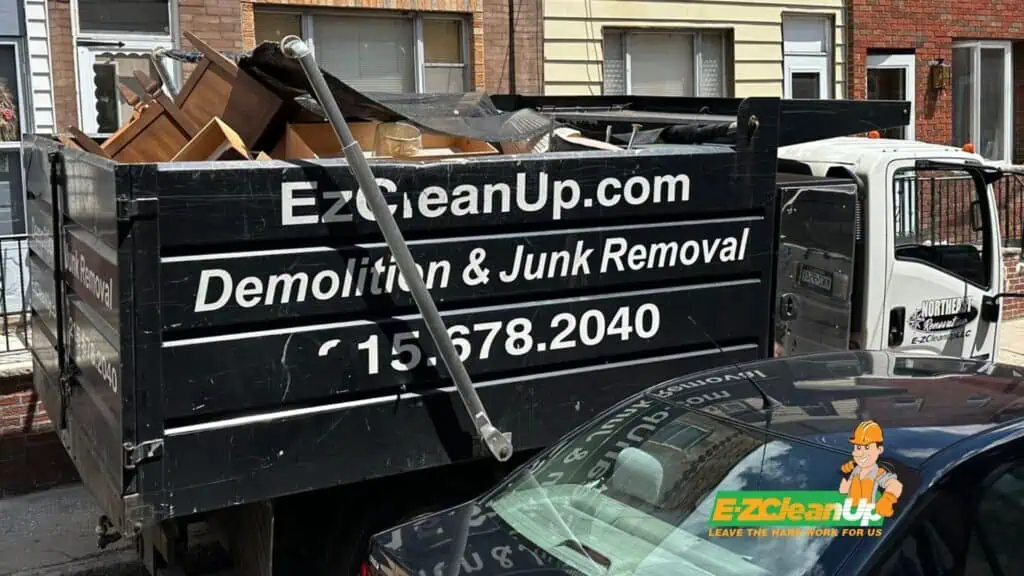
Reduce Waste, Maximize Space
After exploring how to efficiently reduce waste at home, it’s clear that managing leftover materials, especially during big cleanouts or renovations, can be a challenge. EZ CleanUp specializes in making these tasks effortless.
Whether you’re dealing with construction debris or just clearing out your space, we provide comprehensive junk removal and demolition services to make sure everything goes well. Ready to clear the clutter responsibly? Reach out to EZ!

